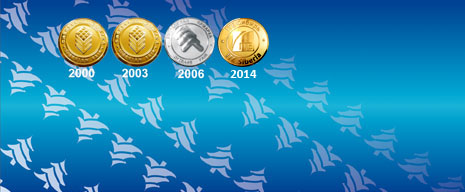 |
 |
Philosophical Grounds of National Identity
The article deals with the philosophical and methodological foundations of national identity as a multi-level social and cultural phenomenon. Allocated national government national and ethnic and national-regional aspects. The ^ phenomenon of the "dialogue of cultures" — in the context of the mental approach, developed by the author, — is I- represented as in the socio-group and individually-personal dimensions. Philosophical understanding of the "dialogue p of cultures', the exchange of traditional and other existing values in a globalized world actualized increasing challenges >» and threats of modern information civilization. Interaction between cultures and civilizations through the prism of the >5 mentality phenomenon. Interaction of systems of internal deep-mental, socio-cultural society, a social group or an ^ individual, specific to the particular society and culture in terms of cash have a mental dialogue. It is a mental dialogue — О exchange of psychological attitudes in interaction — the author appears as a priority in terms of the formation of the ^ historical, cultural, political and ideological identity. The paper attempts to study globalization as a global socio-cultural ID phenomenon as a whole and its Aspect manifestations in terms of ontology of view, but also from the standpoint of У epistemology. The interaction of cultures and civilizations quite clearly viewed through the prism of the mentality of the phenomenon — the interaction of internal systems deep-mental, socio-cultural society, a social group or an individual. The history of mentalities is regarded as the preservation of (broadcast) and modification (in the context of the dynamic principle) organic to a particular socio-historical environment of mentalities, is not quite clear (unconscious) systems thinking, values, and even in a certain sense "automatism and skills of consciousness."
Keywords: mentality, mental approach, national identity, philosophy of history, the "dialogue of cultures', globalization, social philosophy and anthropology.
Сайт поддерживается в Новосибирском институте повышения квалификации и переподготовки работников образования и является участником Новосибирской открытой образовательной сети